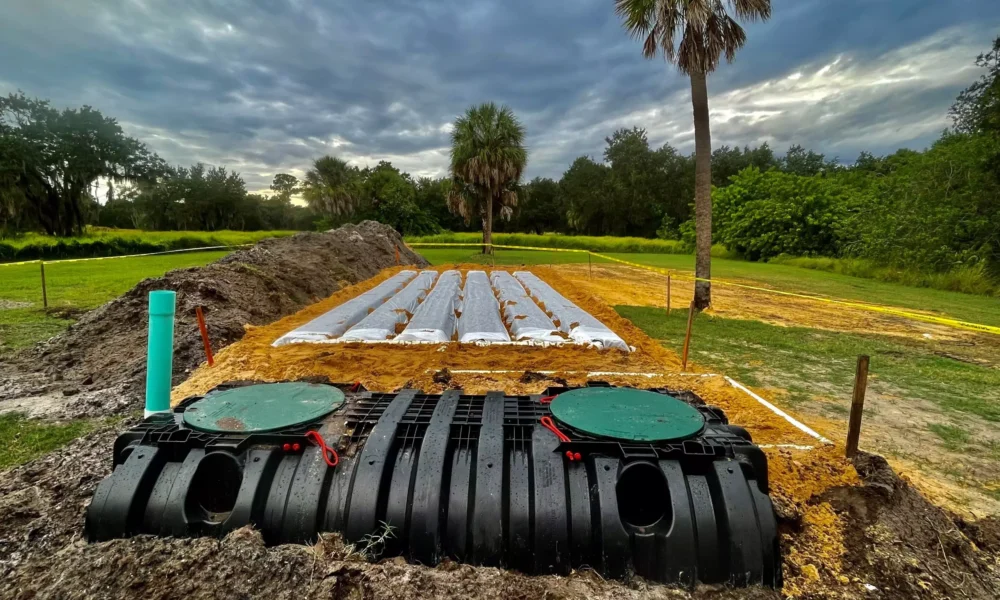Sewage systems are an essential component of wastewater management, particularly in rural and suburban areas without access to centralized sewer systems. Over the years, advancements in wastewater disposal system technologies have significantly improved their efficiency, reliability, and environmental impact. This article explores the latest innovations in the sewage system industry, highlighting how these technologies are transforming wastewater treatment and offering sustainable solutions for homeowners and communities alike.
1. Advanced Treatment Units (ATUs)
Advanced Treatment Units (ATUs) are one of the most notable innovations in sanitation system technology. Unlike traditional septic tanks that rely on anaerobic processes to treat wastewater, ATUs use aerobic processes, introducing oxygen to enhance the breakdown of organic matter. This results in higher-quality effluent, which can be safely discharged into the environment or reused for irrigation. ATUs are particularly beneficial for properties with poor soil conditions or high water tables, where conventional systems may struggle.
2. Effluent Filters
Effluent filters are simple yet effective devices installed at the outlet of septic tanks to prevent solid particles from entering the drain field. These filters significantly reduce the risk of clogging and extend the lifespan of the entire septic system in Springfield, OH. The latest effluent filters are designed for easy maintenance and can be cleaned without professional assistance, making them a cost-effective upgrade for many homeowners.
3. Remote Monitoring Systems
Remote monitoring systems represent a significant leap forward in household septic setup management. These systems use sensors and smart technology to continuously monitor the performance of septic units, detecting issues such as blockages, leaks, and overflows in real-time. Homeowners and service providers receive alerts via mobile apps or email, allowing for prompt intervention and preventing costly repairs. Remote monitoring enhances the overall reliability and efficiency of sewage systems, providing peace of mind to users.
4. Aerobic Treatment Systems (ATS)
Aerobic Treatment Systems (ATS) are an advanced alternative to traditional septic tanks. These systems introduce oxygen into the treatment process through mechanical aeration, promoting the growth of aerobic bacteria that efficiently break down organic waste. ATS units produce cleaner effluent, which can be safely discharged into the environment or reused. They are particularly useful in areas with sensitive ecosystems, as they minimize the risk of groundwater contamination.
5. Septic Tank Additives
Septic tank additives, including biological and chemical treatments, have seen significant advancements in recent years. These additives promote the health of the microbial community within the septic tank, enhancing the breakdown of organic matter and reducing sludge buildup. While not a substitute for regular maintenance, high-quality additives can improve system performance and reduce the frequency of pump-outs.
6. Drip Distribution Systems
Drip distribution systems are a modern advancement in sanitation system drain fields. Instead of conventional trenches or beds, these systems use a network of small, flexible tubes to distribute effluent evenly across the soil surface. This method promotes better absorption and reduces the risk of soil saturation and system failure. Drip distribution systems are ideal for properties with challenging soil conditions or limited space.
7. Greywater Recycling Systems
Greywater recycling systems offer a sustainable solution by treating and reusing wastewater from showers, sinks, and laundry. These systems divert greywater from the septic tank, treat it to remove contaminants, and then use it for irrigation or toilet flushing. Greywater recycling reduces the load on the sewage system and conserves water, providing both environmental and financial benefits.
The wastewater system industry has made remarkable strides in recent years, introducing innovative technologies that enhance the efficiency, reliability, and environmental sustainability of wastewater treatment. From advanced treatment units and remote monitoring systems to eco-friendly constructed wetlands and greywater recycling, these innovations offer practical solutions for modern wastewater management. Homeowners and communities can now choose from a variety of advanced sewage management system technologies to meet their specific needs, ensuring effective and sustainable wastewater treatment for the future. Embracing these innovations not only protects public health and the environment but also contributes to the long-term resilience and functionality of sewage disposal systems.
Finding a trustworthy partner for septic tank installation in Springfield, OH, is now made simple with the professionals at Dooley Service Pro for eco-friendly septic solutions for a cleaner, more efficient home. Call (937) 323-1703 for consultation!
